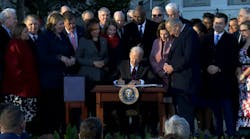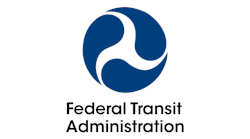FTA changes application process for third round of Tribal Transit Program funding
In August 2024, the Federal Transit Administration (FTA) made nearly $9.2 million available to support American Indian Tribes and Alaska Native communities through the Tribal Transit Program.
As part of the funding made available for the program, FTA revealed it had streamlined the application process for the program and made the following changes to ensure everyone – even those running some of the U.S.'s smallest transit systems – can compete for federal support of their critical transportation systems:
- Raising the cap on planning projects from $25,000 to $50,000.
- No longer limiting which tribal governments can apply for operating assistance.
- Not requiring a local match for any project funded through the Tribal Transit competitive program.
FTA made the changes to the program after receiving feedback from Tribal Governments. According to FTA Chief of Rural and Targeted Programs Marianne Stock, there was an overwhelming consensus from the Tribes that doubling the cap to $50,000 would allow them to complete more comprehensive and better transit planning projects.
Stock adds the second change of no longer limiting which tribal governments can apply for operating assistance was made because the program was originally created to fund mostly major capital projects that Tribes wouldn't be able to fund just using formula money.
“At the start of the COVID-19 pandemic, we knew that a lot of Tribes were really struggling with their ability to operate [services] so we lifted that restriction and made operating assistance available under the competitive program for all Tribal transit systems across the country. When we went out and looked for feedback through our consultation process, the Tribes told us that they really appreciated that and that operating assistance was a significant need still and so we decided not to put that restriction back in place,” Stock said.
In regard to the third change to the program, Stock notes in the past, Tribes applying to the program were required to provide a 10 percent match in local funds. Eliminating this local match was the most frequent request from Tribes.
In Fiscal Year 2023, FTA awarded funds to 22 American Indian Tribes and Alaska Native communities to help them meet the needs of their citizens, including elders, people with disabilities and youth in Indian Country. Some of the projects funded include:
- The Oneida Indian Tribe in New York received funding to support a planning study for the new Oneida Indian transit system.
- The Cheyenne River Sioux Tribe in South Dakota received funding for a capital and an operating project to purchase a new bus and a minivan.
- The Village of Iliamna in Alaska received funding to construct a new facility that will house the Tribe's vehicle fleet to protect their vehicles from the harsh weather conditions in Alaska.
According to Stock, there are many factors in determining whether an application for the program receives funding, including:
- Planning and local and regional prioritization — What kind of plans have been discussed about the project within the community?
- Project readiness — If awarded funding, is the project ready to go?
- Project benefits — What are the benefits of the project?
- Financial commitment — Does the Tribe have the financial capacity/infrastructure in place for the project?
Stock says while FTA would love to fund every project that applies for funding, each application goes through a selection process to be selected.
“We have the restriction of how much money is available so often we receive more good applications than there is money to fund all of them. The review process comes up with which ones are recommended for funding and then there's another process where we look at the whole pool of what's recommended and we do sometimes have to make choices and usually there's a place on the application where we ask each applicant, ‘If we don't have enough money to give you, is there a lesser amount that you would accept and still be able to do something with?’” Stock noted.
Geographical location is also a factor in determining which projects get funded.
“If there are multiple applications in one state or one part of the country, then sometimes we will try to make sure that our final selections, if we can't fund all of them, we at least cover all the states that have at least one so that sometimes means, unfortunately, that some really good projects might not get funded if there's so many in the same state,” Stock said.
The funding for the program is authorized by the Infrastructure Investment and Jobs Act. The application period will close on Nov. 13, 2024. Applications can be found on FTA’s website.

Brandon Lewis | Associate Editor
Brandon Lewis is a recent graduate of Kent State University with a bachelor’s degree in journalism. Lewis is a former freelance editorial assistant at Vehicle Service Pros in Endeavor Business Media’s Vehicle Repair Group. Lewis brings his knowledge of web managing, copyediting and SEO practices to Mass Transit Magazine as an associate editor. He is also a co-host of the Infrastructure Technology Podcast.






